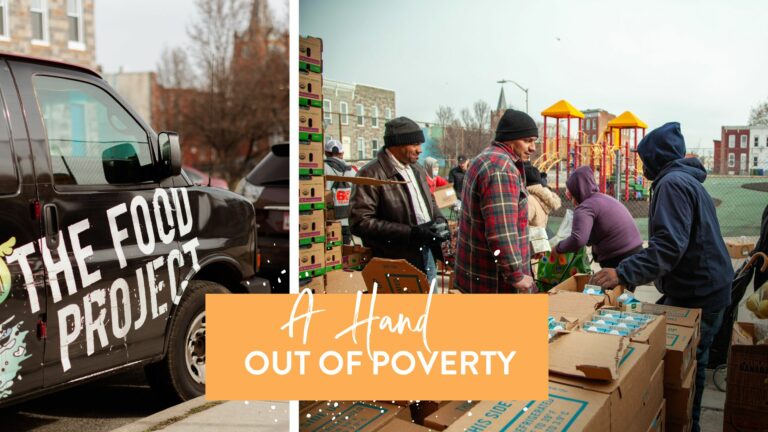
Hunger—it’s something we talk about a lot here at Blessings of Hope. In the past, we’ve covered various topics that focus on what we’re doing to end hunger, the differences in food banks and food pantries, and even how to help out hungry families during a pandemic.
But what are the root causes of hunger? Where does the problem of food insecurity or malnutrition start?
Hunger is a Worldwide Emergency
According to the United Nations Food and Agriculture Organization (FAO), approximately 815 million out of the 7.6 billion people in the world suffered from chronic undernourishment in 2016. This means that there were 815 million people in the world who were unable to consume the daily minimum nutrition requirements over the period of a year.
For a closer look, the United States Department of Agriculture (USDA) stated that 12.3 percent of households in the United States in 2017 were food insecure. In other words, 1 in 8 households had difficulty providing food for everyone in the home at some point during the year.
In today’s post, we want to discuss some of the root problems of hunger, how those problems lead to people being food insecure or malnourished, and how that can affect future generations.
What are the Root Causes of Hunger?
There are a lot of reasons and causes why so many people are going hungry in the world today. Sometimes these reasons go hand-in-hand, but each one presents its own problems, issues, and even cycles that can be hard to break. A list from Bread for the World Institute highlights some of the leading root causes of hunger that we see today:
Poverty
Poverty is the leading cause of food insecurity and hunger in the United States and throughout the world. When people can’t afford enough food for their families, they may go hungry.
Job Instability
When the economy is in a downturn, or people cannot hold a job that pays them enough to provide adequate food for their families, this can cause hunger. For example, a single parent may not be able to work a full-time job and also care for their children.
Food Shortages & Waste
Food shortage is more common in underdeveloped countries where food is grown mostly on farms, but in the U.S. (and here at Blessings of Hope), we see a lot of food waste going to landfills from spoilage. We work hard to try and eliminate waste as much as possible before the food goes bad.
Climate Change
As populations grow throughout the world, agriculture has to keep up with the demand for food. Unfortunately, with the increase in climate change, farmers have a more difficult time maintaining that demand.
Nutritional Quality Disparity
A lack of nutritional quality in available food tends to go hand-in-hand with poverty. When people can’t afford well-balanced meals, they turn to cheaper options that can lead to a lack of vitamins and protein that their families need to stay healthy. Unfortunately, this is especially common in children.
The Impact of Hunger on Children’s Health
Once again, according to the USDA, 41 million Americans face hunger every year. The worst part? Nearly 13 million of that number are children. Future generations rely on children’s health and wellness, yet with so many children facing food insecurity, these generations may struggle.
When children don’t get proper nutrition, they may struggle with chronic illness and emotional problems. Health issues like an increased risk of obesity due to poor eating habits are more prominent. Plus, the cheaper processed foods that families buy when they’re struggling with money tend to be less healthy and full of fat, salt, and carbohydrates. These issues can follow children into adulthood, leading to lower life expectancies or other health issues.
It’s also important to note that when children are hungry, they may also have learning issues since their minds focus more on their growling stomachs than school. A lack of nutrients can lead to a loss in memory or cognition, too, which is detrimental to learning at such a young age.
How Can You Help Feed the Hungry?
Now that you understand more about the root causes of hunger, are you ready to help feed the hungry and food insecure? If so, you’re in the right place!
Blessings of Hope works hard to provide healthy meals to hungry families in need. With the help of Our Lord, ministry partnerships, local businesses, volunteers, and people just like you, we’re able to distribute an average of 66,000+ meals a day. The best part? You can easily help out our food bank in Lancaster, PA, right from your computer or phone. Just click the button below or contact us if you have any questions.




